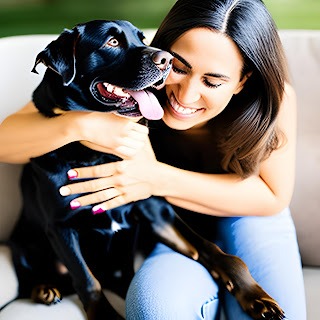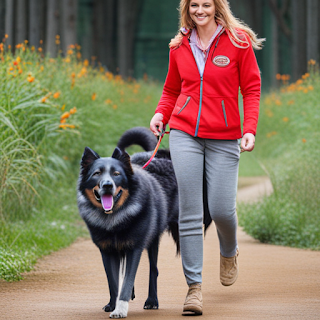Conquering Separation Anxiety: The Inspiring Journey of Lucy the Labrador
In a quaint little town, there lived a beautiful black Labrador named Lucy. Adopted by a loving family when she was just one year old, Lucy's life was filled with joy and affection. However, this seemingly perfect life was marred by one significant challenge – Lucy suffered from separation anxiety.
The Dilemma of Separation Anxiety
Separation anxiety is a common issue faced by many dogs, causing them distress when left alone. In Lucy's case, the first time her owners left her by herself, she became incredibly anxious. She barked and whined incessantly, fearing that her new family had abandoned her for good.
Witnessing Lucy's emotional turmoil, her owners were heartbroken. They knew that they had to find a solution to help their beloved pet overcome her separation anxiety.
The Road to Recovery
Determined to help Lucy, her owners devised a plan. They began by leaving her alone for short periods, gradually increasing the duration over time. Ensuring that Lucy received plenty of attention and exercise before they left the house was also an essential part of their strategy.
Bit by bit, Lucy started to feel more at ease when left alone. She slowly came to understand that her owners would always return to her, and she need not fear their absence. Her family was overjoyed to see the progress Lucy was making and continued to support and work with her.
A Happy Ending
Through patience, love, and consistent effort, Lucy eventually overcame her separation anxiety altogether. She transformed into a happy and confident dog who cherished spending time with her family but was also content in her own company.
Lucy's heartwarming story serves as an inspiration and a reminder that even the most anxious dogs can learn to feel comfortable being alone. Her owners' dedication and unwavering commitment to helping her conquer her fears paid off in the end, resulting in a happy and well-adjusted pet.
This inspiring tale of overcoming separation anxiety highlights the importance of understanding our pets' emotional needs and providing them with the support they require. With love, patience, and a well-thought-out plan, even the most challenging situations can be turned around, ensuring a happy and healthy life for our furry companions.



.jpg)




